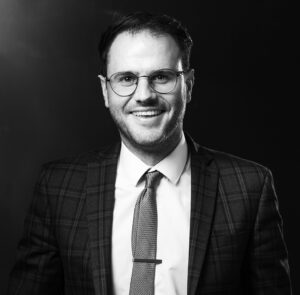Harvey John
Unit 2 Ferry Wharf
Hove Enterprise Centre
Basin Road North
Portslade, East Sussex
BN41 1BD
For our first edition of the Startup FD, we’re delighted to be joined by Rakesh Shah. Rakesh has spent the last 6 years building a scalable finance function at Highview Power, a CleanTech energy storage startup. Having led them through £18m of fundraising, Highview is now beginning the construction of Europe’s largest energy storage plant which will dramatically slash the costs of backup energy reserves.
Over to you Rakesh…
Tell us a bit about yourself, your background and your current role…
I’m Rakesh, Finance Director at Highview Power.
Before Highview Power, I worked for various companies large and small, most recently for two large corporates called Publicis Group and Engie. During these earlier years, I did various jobs starting from accounts assistant to management accountant and finally assistant reporting accountant. All of these roles were in different industries so I learned quite a lot and they all varied in nature. It was these varied jobs across multiple industries that gave me the confidence and know-how to move into a role at a startup.
With your experiences of being a Finance Director, what would you say are the most important things in becoming one at a startup? Any specific characteristics, skills, values, etc. that come to mind?
Naturally, the skills required compared to a role in a corporation are generally wider. Having an attitude that no task is too small or too mundane will be required in the early days, as you could be working on everything from fundraising to billing. Honesty and transparency are crucial, as well as being reasonable and fair. It seems obvious, but as an FD you also need to be unbiased, you shouldn’t take sides, so being very fair and reasonable are characteristics that will gain you long-term respect with the team and all stakeholders. Finally, understand that you won’t have the answers and solutions to everything but have the belief that you know how to find out and get the appropriate outcome.
What have you learned about leadership, entrepreneurship, and mentoring others?
When it comes to leadership and mentoring, my views have been shaped by some great people I’ve worked with in the past and also the great leaders of our time. Honesty and transparency, I believe, are fundamental. Treating people well during difficult times and listening to the team helps everyone feel that they’re valued. Letting your team get on with their jobs without interference or micromanagement helps them develop and excel at their roles and shows that you trust them. Being available to guide and teach when required but having faith they know the best way forward is key. Providing honest feedback when things go wrong, letting them know it’s a safe environment to make mistakes and learn from their mistakes, but also letting individuals know when things have gone well.
I think the entrepreneurial nature of startup companies is the biggest draw for anyone who’s looking to move into a startup. You’ll get to learn and develop far more in areas you previously hadn’t considered and will ultimately be far more well-rounded. You’ll be given more responsibility from an earlier stage than you’d usually get in a larger business and therefore can make a larger impact. I’ve had the chance to lead in fundraising and develop my commercial skills and general management skills, along with various areas outside of finance such as HR, legal, and IT.
There’s a lot of variety there which I’m sure is quite exciting for someone looking into work at a startup. When you joined Highview Power, what stage of growth were they at? What were your immediate priorities?
When I joined, Highview was still in the R&D phase of its development, we’d just won a government-sponsored project which was for £8.8m and was a huge win for the company. I was brought in as the finance manager to first set up the various project accounting aspects to develop robust financial controls for the company and to safeguard the project’s finances. So, this resulted in developing the often taken-for-granted areas of the financial organisation. I set up a PO system, reorganised the chart of accounts, developed the internal controls, implemented the project billing process, and integrated the project financials into a new cash flow model. All of this will sound straightforward to any seasoned accountant, but these elements were crucial at that moment and underpinned the project and safeguarded the company’s finances during the project.
If you could start it all from scratch, would you do anything differently from today’s perspective?
When I have a bit of spare time, I try to reflect on the previous six years and what I’d do differently. The main thing I’d have done differently would have been to hire a finance controller sooner. Once your role develops from the initial phase of setting up the various systems and processes, you begin to focus on the more commercial side of the business and on fundraising. In my case, I was trying to do it all as well as establish our US subsidiary. We did thankfully bring on a fantastic financial controller who greatly helped during this period. It freed up a large amount of my time to focus on the US and fundraising.
What in your opinion is the key draw of working on the finance team of a startup, and why should others consider this path?
I view the main draw as being crucial to the success of the company. You’ll get to learn and develop far more and faster than in a finance job in a large corporate and you’ll get to be part of something that could change the world. It’s not a path for everyone, naturally, there are risks to joining a startup, however, the market for individuals who are qualified or part qualified is very strong so you should always be able to find a suitable role.
What would you look for when hiring further for your team?
Mainly passionate about the company and its mission. A great manager once said to always hire someone smarter than you, which is something I still follow to this day! I also look to see they can do the job but I mainly focus on if they have the desire to learn and develop. I usually don’t focus on if they’re from a particular industry or sector or even a startup. Ideally, depending on the level we’re recruiting for, we’ll look for someone with good technical skills, but I’m not concerned if they don’t have the right commercial skills yet and I can help them develop these. I do this since, during the earlier stages of a company, the technical accounting elements are basic and therefore there aren’t many opportunities to learn them. However, as the business scales, you’re required to know these technical areas, so I want to know if they can use their technical skills when the time arrives.
What would you say are the biggest challenges you’ve found working within a high-growth startup?
The biggest challenge is also the main thing I love about the role, and that’s the variety of it! Focusing on so many things at the same time can be very challenging so, good time management, delegation skills, and knowing what’s important and what isn’t, are crucial.
From your experience, is there a right time to start building a finance team in a startup?
As soon as you start to focus on more than the day-to-day finance and start working on the commercial side of the business and fundraising, you should look to start building a team. The first hire should be whoever makes your life the easiest.
That’s a very proactive way of thinking of growing a team, usually, it’s the other way around! In all that you do, where do you get your motivation from?
I feel that working for a startup you’re passionate about really helps. If you feel the company’s mission/purpose aligns with your own, it becomes much easier to be motivated about what you’re spending most of your day doing.
What advice can you share with other finance professionals who are considering a move to working within a startup?
Thinking back to how I felt 6 years ago before I made the move, my main worry was: can I do this job? Have the confidence and self-belief that you do have what it takes to not only do the job but do it very well. Don’t confuse confidence with ego though and ensure you’ve had a varied career before you make the jump. Also, make sure you feel comfortable with the various more mundane areas of finance along with the more interesting ones. Finally, just do it! it’s the most fun you’ll have working and you’ll develop and learn much more than you thought possible.
You’ve been at Highview for 6 years, however, you’re due to leave at the end of the year. How do you feel about this and what will be your next challenge?
Yes, we’ve just announced our first commercial project here in the UK and are due to complete significant fundraising so the company is well-positioned. I have every confidence that they’ll do well over the next few years as further projects are announced. After being so involved for the last 6 years, it feels somewhat strange to be leaving but it also feels like the right time. I’m excited to use the skills I’ve developed at Highview to help another business scale and raise funding in the new year.
Thank you so much for your time, Rakesh. Some intriguing insights from a long-term growth project and some excellent takeaways for those looking to get into the sector! All the best for your next venture!
Callum McKenna is an Associate Director in the Accountancy Division at Harvey John.
Search our latest accountancy and finance jobs here.
If you would like to see our company updates and industry insights, follow our LinkedIn page here.
Author

Callum’s expertise lies within assisting both SMEs and large corporations, and he prides himself in his ability to offer a tailored service to both candidates and clients.
In a candidate-driven market, Callum will use his expertise of the accountancy market, to attract and approach the best talent available.





